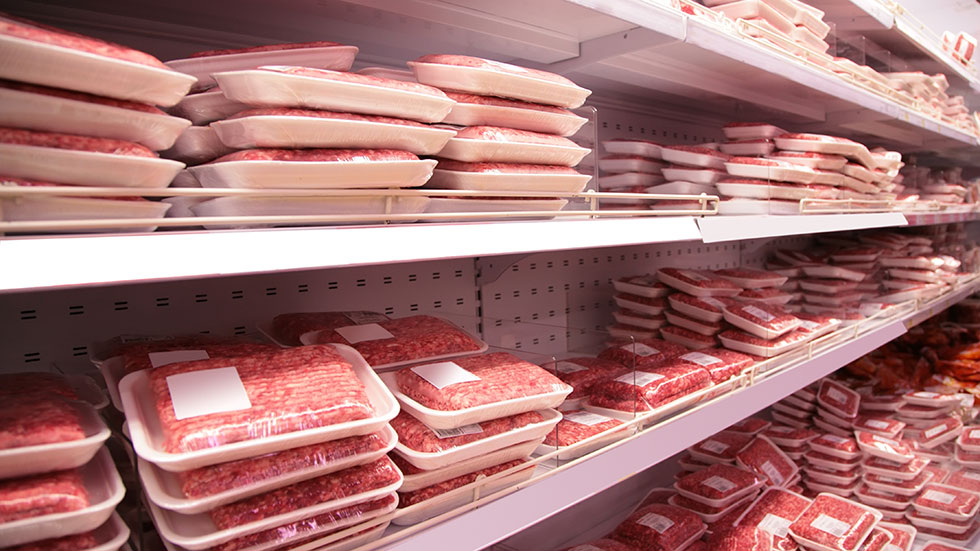On The Money — Biden’s beef with the meat industry
Happy Monday and welcome to On The Money, your nightly guide to everything affecting your bills, bank account and bottom line. Subscribe here: digital-staging.thehill.com/newsletter-signup.
Today’s Big Deal: President Biden is taking action to crack down on rising meat prices. We’ll also look at big questions facing the economy this year and a regulatory shakeup.
But first, if you got hit with Monday’s snowstorm, send me pictures of your dogs playing in (or avoiding) the snow.
For The Hill, I’m Sylvan Lane. Write me at slane@digital-staging.thehill.com or @SylvanLane. You can reach my colleagues on the Finance team Naomi Jagoda at njagoda@digital-staging.thehill.com or @NJagoda and Aris Folley at afolley@digital-staging.thehill.com or @ArisFolley.
Let’s get to it.
White House budgets $1B to lower meat costs

The White House on Monday announced plans aimed at addressing rising prices for meat and poultry, including setting aside $1 billion for smaller producers.
- The Biden administration unveiled its action plan to diversify and strengthen the meat-producing supply chain ahead of a scheduled virtual meeting between President Biden and independent farmers and ranchers.
- The administration is dedicating $1 billion from the American Rescue Plan, a bill signed into law last year, specifically for the purpose of expanding independent meat processing capacity.
- That includes $375 million in grants for independent meat producers, $275 million in additional financing available for processors, $100 million to address inspection costs for smaller processing plants and $100 million in training for workers in the meat and poultry industry.
“When dominant middlemen control so much of the supply chain, they can increase their own profits at the expense of both farmers — who make less — and consumers — who pay more,” the White House said in a fact sheet announcing its action plan on Monday.
“Most farmers now have little or no choice of buyer for their product and little leverage to negotiate, causing their share of every dollar spent on food to decline.”
The Hill’s Brett Samuels breaks it down here.
LEADING THE DAY
Five questions facing the economy in 2022
The U.S. economy defied expectations in almost every way as it continued to recover from the deepest downturn since the Great Depression. While economists expect another year of solid growth in 2022, the U.S. will still face challenges and obstacles driven by the pandemic.
- How will the omicron variant affect the economy? The December spike in COVID-19 cases driven by the omicron variant has prompted a wave of cancelled events, postponed travel plans, temporary business closures and tighter health protections.
- How high will inflation continue to rise? As suppliers boosted prices to handle the surge of demand, inflation as measured by the growth in the consumer price index (CPI) hit an annual rate of 6.8 percent in November—the highest level in more than 40 years.
I’ve got the rest here.
RATE EXPECTATIONS
Americans borrowed record $1.61 trillion to buy homes in 2021
Mortgage lenders issued $1.61 trillion in purchase loans in 2021, up from $1.48 trillion in loans issued in 2020 and marking the highest mortgage borrowing numbers ever recorded.
The 2021 figures exceeded a previous record set in 2005, when $1.51 trillion in loans were issued, according to The Wall Street Journal.
The record-setting numbers reflect a red-hot housing market. At the beginning of the pandemic, people were drawn to the market with low interest rates and desire to have more space at home — desires that continue to drive up house prices, the Journal noted.
Lexi Lonas has more here.
ICYMI
FDIC chairman appointed by Trump resigns
Federal Deposit Insurance Corp. (FDIC) Chairman Jelena McWilliams, a Trump appointee, resigned Friday amid a power struggle with Democratic members of the agency’s board.
In a letter to President Biden released Friday, McWilliams announced she would step down from the FDIC on Feb. 4, less than four years after she was confirmed by the Senate to lead the bank regulator.
- McWilliams’s unexpected resignation came weeks after Democratic directors on the FDIC board attempted to launch a review of bank merger standards without her approval.
- While McWilliams ostensibly controlled the FDIC board, she was the sole Republican countering three Democratic directors: Former FDIC Chairman Martin Gruenberg, Consumer Financial Protection Bureau (CFPB) Director Rohit Chopra and Acting Comptroller of the Currency Michael Hsu.
Good to Know

At least 20 states began the new year by increasing their minimum wages, while Puerto Rico and several cities and counties also bumped up pay for workers in 2022.
Here’s what else we have our eye on:
- Apple has become the first U.S. company to hit a market capitzliation of $3 trillion during intraday trading.
- Transportation Secretary Pete Buttigieg and the administrator for the Federal Aviation Administration sent a letter addressed to Verizon and AT&T requesting that they delay their rollout of 5G services amid airlines’ concerns over flight disruptions.
That’s it for today. Thanks for reading and check out The Hill’s Finance page for the latest news and coverage. We’ll see you tomorrow.
Copyright 2024 Nexstar Media Inc. All rights reserved. This material may not be published, broadcast, rewritten, or redistributed..











